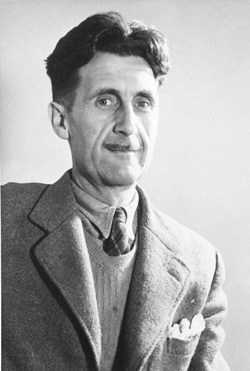
The Society devotes a great deal of effort to setting and maintaining standards in its professional qualification. Since my involvement with the Chartership Panel I have been very impressed with the organisation and structures for this process, and the hard work and dedication of all involved. Yet today only about 2250 Fellows are Chartered, from a total membership of almost 10,000. By my own reckoning this means that around two thirds of those Fellows earning their living as professional geologists cannot be bothered to become professionally qualified.
This is where “doublethink” comes in. The Society has established and accepts the need for a UK professional qualification for geologists. Yet it is happy for the vast majority of its members who work as professionals to ignore it! This makes the Society the only official UK professional regulator that affords equal status to qualified and non-qualified practitioners. Eric Blair would surely have loved that.
So what is to be done? Ruling out the (truly) unthinkable notion that the Society should give up being a professional regulator, which would downgrade professional geoscientists to technician status beside their regulated colleagues in other professions, what options remain?
I believe the only viable option is to move forward and develop support for professional practice (while at the same time continuing the Society’s excellent work supporting science). This is not simply a matter of “promoting” the Chartered Geologist qualification, important though that is. First and foremost it is about promoting, developing and growing the whole Society - as both a champion for science, and as a UK professional regulator. I believe this would ultimately raise both the Society’s public and scientific profile. It would also result in a greater proportion of professional geologists supporting the Society by joining - thereby justifying the claim we make to represent both science and profession.